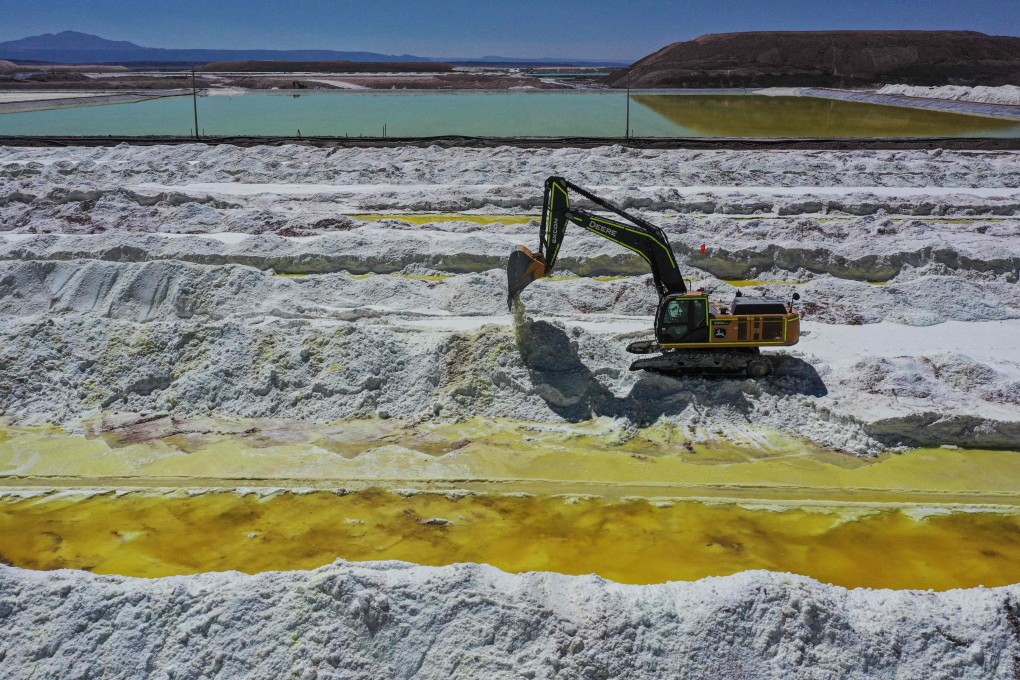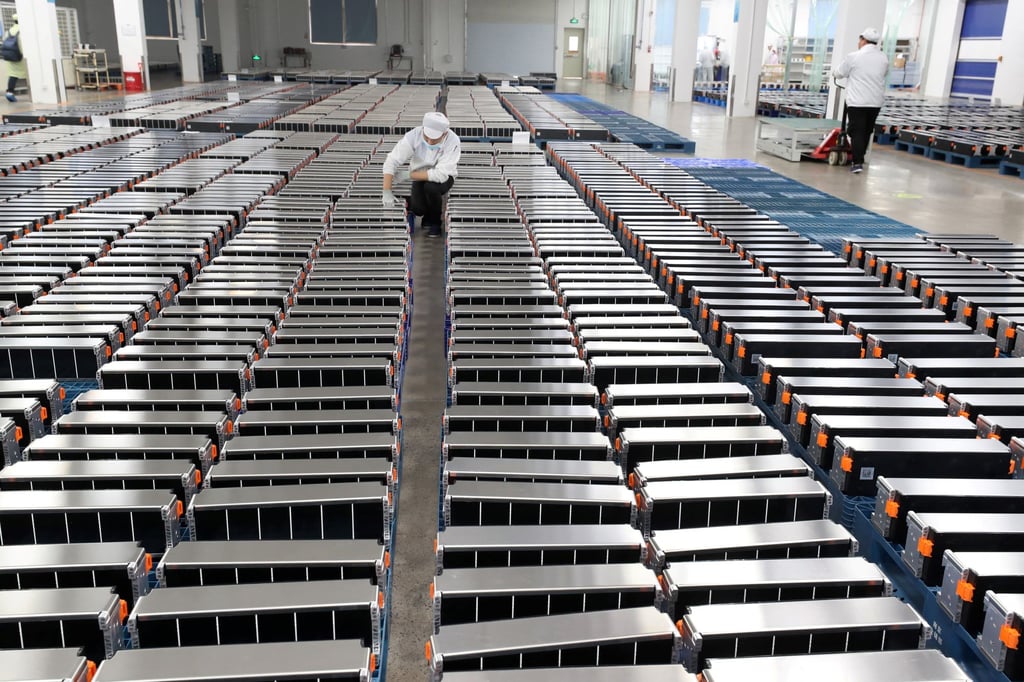Lithium price may fall by 25 per cent in 2023, offering relief for global electric car makers, Chinese miner says
- The price of lithium carbonate may drop to 400,000 yuan a ton in 2023, from mid-November’s record 600,000 yuan a ton, said Sinomine Resource Group’s chairman
- More mine supply will push the market into a surplus next year and help soften prices, BYD’s executive vice-president said

Lithium is going to get less expensive in 2023, according to a Chinese supplier of the battery metal, potentially offering some relief to electric-vehicle makers squeezed by soaring costs.
“We believe the gradual, downward trend for lithium will continue next year,” Wang said, predicting a fall of around a quarter from current levels that will still leave the company with “good” profits. Prices will not fall off a cliff as the market remains tight, said Wang, whose company operates mines in Zimbabwe and Canada.

Sinomine’s Wang said he sees lithium carbonate prices drifting to about 400,000 yuan a ton in 2023. That compares with 527,500 yuan at present and a record of nearly 600,000 yuan in mid-November, according to data from Asian Metal. The lower level would still offer good margins for Sinomine, he said.